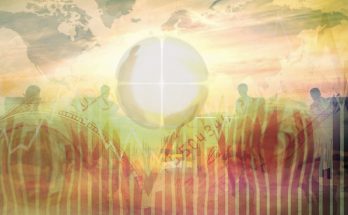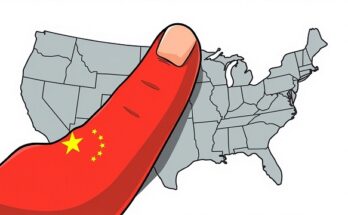Turkey’s political landscape has been marked by increasing authoritarianism, particularly under President Recep Tayyip Erdoğan and his Justice and Development Party (AKP). The consolidation of power in the executive branch has led to the erosion of democratic institutions and a decline in civil liberties. The crackdown on dissent, media freedom, and political opposition has created an environment of fear and repression. This political instability has not only alienated segments of the population but has also raised concerns among international observers regarding Turkey’s commitment to democratic principles.
The Turkish economy has faced significant challenges in recent years, including high inflation, currency devaluation, and rising unemployment. The lira has lost substantial value against major currencies, leading to increased costs of living for ordinary citizens. Economic mismanagement, coupled with the impact of the COVID-19 pandemic, has exacerbated these issues. Many Turks are struggling to make ends meet, leading to widespread discontent and protests. The economic crisis has also fueled a sense of hopelessness among the youth, who face limited job opportunities and a bleak future.
Turkish society is increasingly polarized along various lines, including political, religious, and ethnic divisions. The rise of nationalism and religious conservatism has created a rift between secular and religious segments of the population. This polarization is evident in the political discourse, where opposing factions often resort to inflammatory rhetoric. The Kurdish issue remains a particularly contentious topic, with ongoing tensions between the Turkish state and Kurdish groups. This social fragmentation undermines national unity and complicates efforts to address pressing societal issues.

Turkey’s cultural identity is complex, influenced by its Ottoman past, secularism, and a diverse population. However, the rise of conservative values has led to tensions between traditional and modern lifestyles. Issues such as women’s rights, LGBTQ+ rights, and freedom of expression have become battlegrounds for cultural conflict. The government’s stance on these issues often reflects a conservative agenda, further alienating progressive segments of society. This cultural clash contributes to a sense of disillusionment among those who advocate for a more inclusive and pluralistic society.
Turkey’s geopolitical position has also placed it under external pressures. The ongoing conflicts in neighboring Syria and Iraq, the refugee crisis, and strained relations with Western countries have complicated Turkey’s foreign policy. The government’s handling of these issues has led to criticism both domestically and internationally. Additionally, Turkey’s aspirations to play a more significant role on the global stage have sometimes resulted in diplomatic isolation, further complicating its internal challenges.

The challenges facing Turkish society are complex and interrelated, encompassing political, economic, social, and cultural dimensions. While the notion of societal collapse may be an exaggeration, it is clear that Turkey is at a crossroads. Addressing these issues will require a concerted effort from all segments of society, including political leaders, civil society, and ordinary citizens. The future of Turkey hinges on its ability to navigate these challenges and foster a more inclusive, democratic, and prosperous society.
Economically, Turkey faces a myriad of challenges, including high inflation, currency devaluation, and rising unemployment rates. The economic instability has disproportionately affected lower and middle-income families, exacerbating existing inequalities and leading to widespread discontent. The reliance on foreign investment and external markets has made the economy vulnerable to global fluctuations, further complicating efforts to achieve sustainable growth. Additionally, the COVID-19 pandemic has intensified these economic pressures, revealing the fragility of Turkey’s economic structure. To foster a more resilient economy, comprehensive reforms are necessary, focusing on diversification, innovation, and the promotion of local industries.
Socially, Turkey grapples with issues related to identity, migration, and integration. The influx of refugees, particularly from Syria, has strained public services and resources, leading to tensions between host communities and newcomers. This situation has been exacerbated by rising nationalism and xenophobia, which threaten social cohesion. Furthermore, the ongoing struggle for gender equality and the rights of marginalized groups, including the LGBTQ+ community, highlights the need for a more inclusive society. Addressing these social challenges requires a commitment to fostering understanding and acceptance among diverse groups, as well as implementing policies that promote equality and protect the rights of all citizens.

Culturally, Turkey’s rich heritage and diverse population present both opportunities and challenges. The tension between secularism and religious conservatism continues to shape cultural discourse, influencing everything from education to public life. The government’s approach to cultural expression has often been contentious, with restrictions on artistic freedom and censorship of dissenting voices. To navigate these cultural challenges, it is essential to promote a pluralistic society that values diversity and encourages open dialogue. This can be achieved through educational initiatives that foster critical thinking and cultural appreciation, as well as support for the arts and creative expression.
Ultimately, the future of Turkey hinges on its ability to confront these interconnected challenges and work towards a more inclusive, democratic, and prosperous society. This endeavor will require a concerted effort from all segments of society, including political leaders, civil society organizations, and ordinary citizens. By fostering collaboration and dialogue, Turkey can begin to heal the divisions that have emerged and build a more resilient society. The path forward may be fraught with difficulties, but with determination and a shared vision for a better future, Turkey has the potential to emerge from this crossroads stronger and more united.



